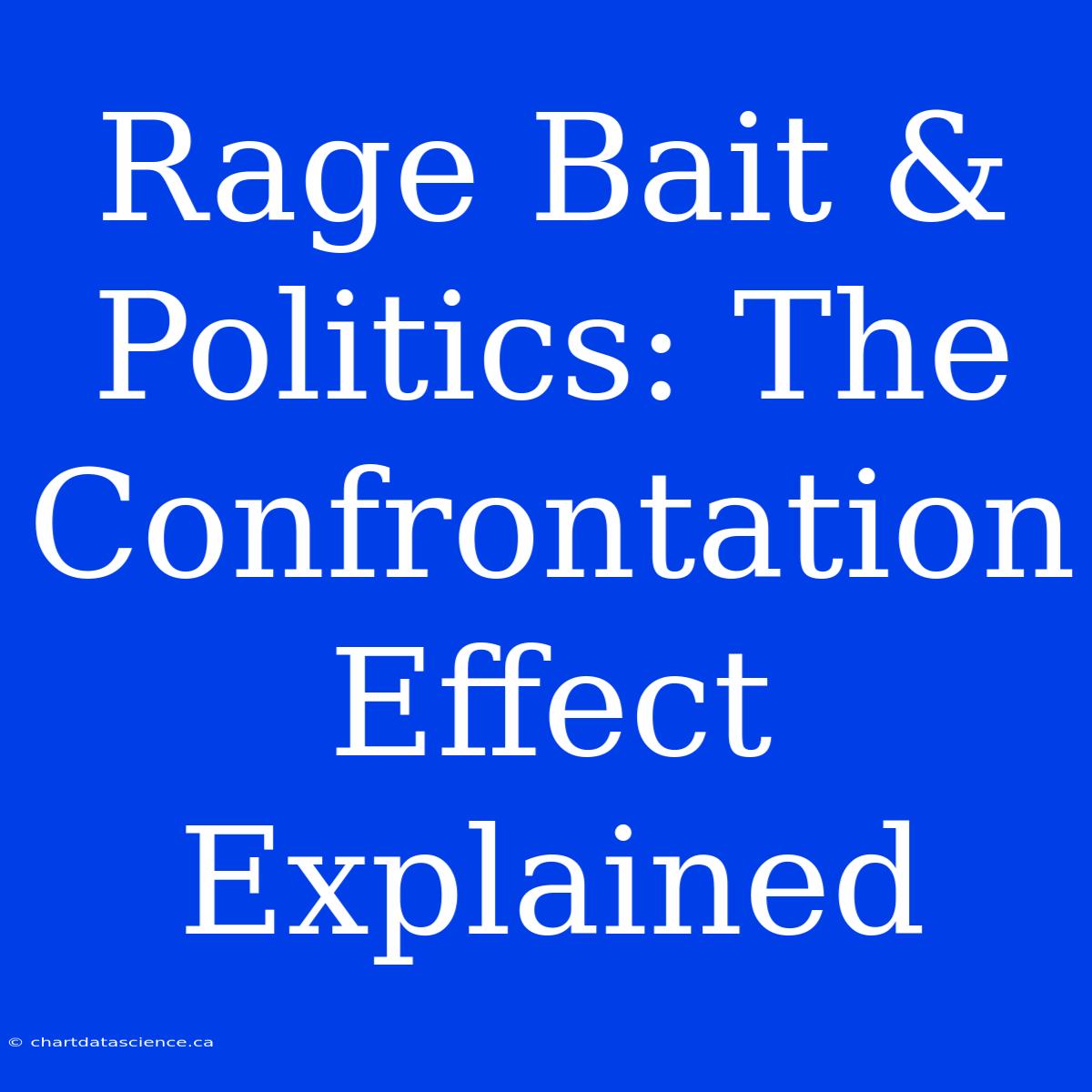Rage Bait & Politics: The Confrontation Effect Explained
We've all seen it: headlines designed to make us furious, articles that push our buttons, and social media posts that make our blood boil. This is the world of rage bait, and it's become increasingly prevalent in politics. But why are we so drawn to it, and what effect does it have on our political discourse?
The Confrontation Effect
The phenomenon behind our fascination with rage bait is called the Confrontation Effect. This psychological principle suggests that we're more likely to remember and be influenced by information that challenges our existing beliefs, even if it's presented in an inflammatory way. This is because our brains are wired to seek out novelty and conflict. We're naturally curious about things that make us think, even if those things make us angry.
How It Works in Politics
Political rage bait often takes the form of inflammatory headlines, divisive rhetoric, and emotionally charged arguments. It's designed to trigger our emotional responses, making us more likely to share, comment, and engage with the content.
The Problem With Rage Bait
While the Confrontation Effect might seem harmless, the consequences of rage bait in politics are significant. It can lead to:
- Increased Polarization: By fueling anger and resentment, rage bait deepens the divide between different political factions, making compromise and understanding more difficult.
- Reduced Trust: The constant barrage of inflammatory content erodes trust in institutions and fellow citizens, making it harder to engage in constructive dialogue.
- Spread of Misinformation: Rage bait often uses sensationalized or misleading information to stoke outrage, further fueling the spread of misinformation and harmful stereotypes.
Navigating The Storm
The key to mitigating the negative effects of rage bait is to develop critical thinking skills. This means:
- Questioning Headlines: Be wary of headlines that use emotionally charged language or make sweeping generalizations.
- Seeking Multiple Perspectives: Don't rely on a single source for information. Look for diverse viewpoints and perspectives on issues.
- Focusing on Facts: When encountering inflammatory content, try to focus on the facts and avoid letting your emotions dictate your reaction.
It's time to reclaim our political discourse from the clutches of rage bait. By understanding the Confrontation Effect and practicing critical thinking, we can move towards a more constructive and productive political landscape.

